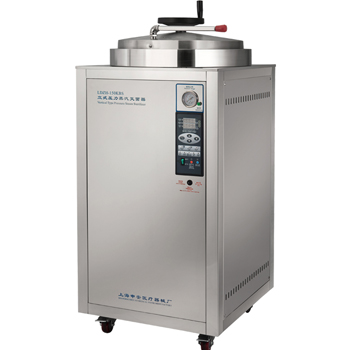一個(gè)新的術(shù)語(yǔ):即用蒸汽滅菌(IUSS)
在美國(guó),AAMI、AORN、APIC、IAHCSMM等組織建議將快速滅菌修改為“即用滅菌”。在上述幾個(gè)組織發(fā)表的一份報(bào)告中專門(mén)描述了Immediate-Use Steam Sterilization(IUSS),先摘錄一部分并給出大致中文翻譯如下:
“Flash sterilization” has traditionally been used to describe steam sterilization cycles where unwrapped medical instruments are subjected to an abbreviated steam exposure time and then used promptly after cycle completion without being stored. This is in contrast to traditional “terminal sterilization” cycles, where instruments are sterilized within containers, wrappers, or primary packaging designed to maintain the instruments’ sterility and allow the devices to be stored for later use. The term “flash” arose out of the abbreviated time of exposure of the unwrapped device.(傳統(tǒng)上,“快速滅菌”用于描述蒸汽滅菌周期,在此程序中,未包裝的醫(yī)療器械經(jīng)受縮短的蒸汽暴露時(shí)間,然后在周期完成后立即使用而不被儲(chǔ)存。這與傳統(tǒng)的“最終滅菌”周期相反,傳統(tǒng)的“最終滅菌”周期是將器械置于硬質(zhì)容器、包裝紙或基本的包裝中進(jìn)行滅菌,以確保器械的無(wú)菌,并允許將滅菌后的器械儲(chǔ)存以供以后使用。 術(shù)語(yǔ)“快速”意味著未包裝器械滅菌時(shí)暴露時(shí)間的縮短)。
Today, however, “flash sterilization” is an antiquated term that does not fully describe the various steam sterilization cycles now used to process items not intended to be stored for later use. Current guidelines may require longer exposure times and/or the use of single wrappers or containers designed to allow for aseptic transfer of an item to the point of use. The term “immediate-use steam sterilization” more accurately reflects the current use of these processes. The same critical reprocessing steps (such as cleaning, decontaminating, and transporting sterilized items) must be followed regardless of the specific sterilization cycle employed; a safe process does not include short-cuts or work-arounds.(然而,現(xiàn)今,“快速滅菌”是一個(gè)過(guò)時(shí)的術(shù)語(yǔ),它并不能完全描述當(dāng)今用于處理不想存儲(chǔ)以供以后使用的物品的各種蒸汽滅菌程序。 目前的指南可能要求更長(zhǎng)的曝光時(shí)間和/或使用單個(gè)包裝或硬質(zhì)容器,以允許將物品無(wú)菌轉(zhuǎn)移到使用地點(diǎn)。 術(shù)語(yǔ)“即用蒸汽滅菌”更準(zhǔn)確地反映了目前這些滅菌程序的使用。不管采用哪種具體的滅菌周期,必須遵循相同的關(guān)鍵性的再處理步驟(如清潔,去污和運(yùn)輸無(wú)菌物品);安全的程序并不包括快捷方式或繞過(guò)嚴(yán)密的流程來(lái)完成活動(dòng)的解決方式)。
“Immediate use” is broadly defined as the shortest possible time between a sterilized item’s removal from the sterilizer and its aseptic transfer to the sterile field. Immediacy implies that a sterilized item is used during the procedure for which it was sterilized and in a manner that minimizes its exposure to air and other environmental contaminants. A sterilized item intended for immediate use is not stored for future use, nor held from one case to another. Immediacy, rather than being defined according to a specific time frame, is established through the critical analysis and expert collaboration of the health care team.(“立即使用”被廣義地定義為被滅菌的物品從滅菌器移出且無(wú)菌轉(zhuǎn)移到無(wú)菌使用地之間的最短時(shí)間。 即時(shí),意味著滅菌的物品在其被使用中是無(wú)菌的,并且以使其最小化地暴露于空氣和其它環(huán)境污染物的方式被使用。 用于立即使用的滅菌物品,不得存儲(chǔ)以備將來(lái)使用;也不能從一種保持狀況轉(zhuǎn)換到另一種。即時(shí)性——不是根據(jù)具體時(shí)間框架定義的,而是通過(guò)醫(yī)療團(tuán)隊(duì)嚴(yán)苛的分析和專家協(xié)作建立起來(lái)的)。

